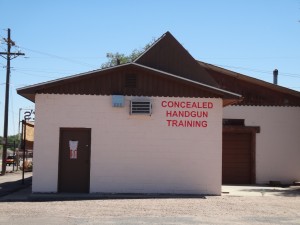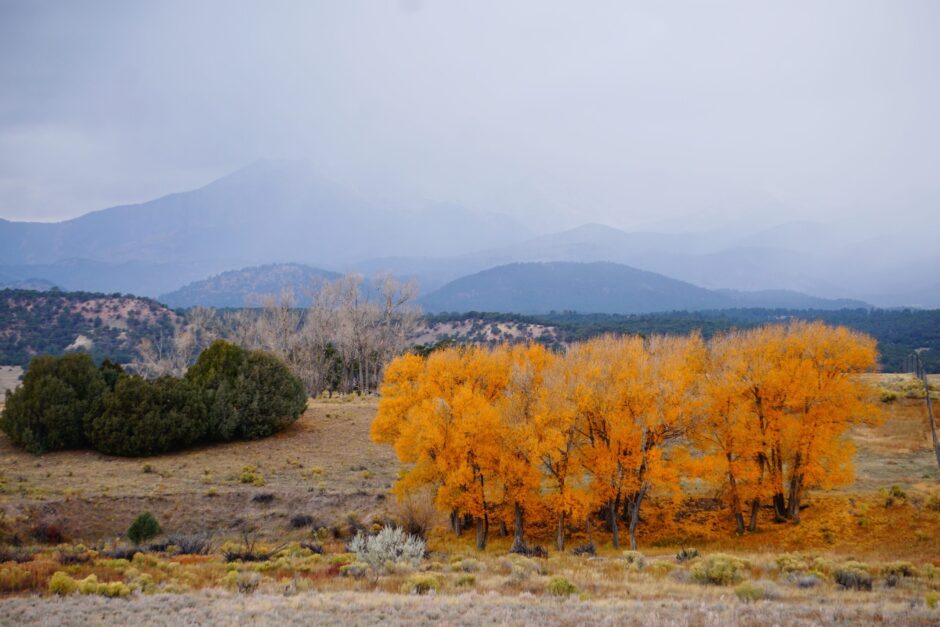So the quirkiest angle of the success of Cormac McCarthy’s The Road (2006) was that we could all recognize what Discovery Channel shows Cormac had been watching, once you realize that the mysterious cataclysm that has befallen the world is some kind of “impact event,” to use the scientific (or quasi-scientific) term for a big asteroid/comet hitting the earth and causing mass destruction. One of the most intense (happy, almost) moments of the novel occurs when the father and son stumble upon a doomsday bunker of sorts in a back yard, one that is stocked with Canned Goods for the Apocalypse, one that saves their lives. After the grimness of the novel leading up to that moment, it’s a ray of light in a bleak world.
Enter the Discovery Channel’s and the National Geographic Channel’s new programs about just the kind of people who would build such bunkers, “Doomsday Preppers” and “Doomsday Bunkers”—as opposed to Doomsday Debunkers, which would be a different program altogether. “Doomsday Preppers” is amusing in a queasy, gruesome, black-humor mode: Most of these people look like they need a diet and some yoga to chill out, and perhaps some visits with a therapist, as well (not that it would help). One woman expects the government to declare martial law and “take over” in the next year or two: Take over what? Doing my laundry? I hope so. Answering my email? Go for it. Somehow, I’m guessing that’s not what she means by the things they would “take over.” It frankly seems part of the nutty Obama-is-after-our-guns myth that has been promoting gun sales to record levels, even though Obama is doing no such thing.
A TV critic in the NY Times has some funny (and some serious) observations about these programs, here:
But I think the reality behind these preppers is: They actually want the Apocalypse to come. Not in a rational way, but in an irrational, religious-extremist kind of way. If you spend much of your time & energy (& money) preparing for such an event, won’t you be somewhat chagrined if/when it doesn’t happen? That’s what fuels the phrase, “It’s not If, but When.” If the phrase is edited to be “Probably Never or in a Long Time or When We Least Expect It Is More Accurate,” it’s not much of a selling point.
We all want something big to happen in our lives. But some more than others.

- October 2023
- September 2023
- September 2021
- April 2020
- September 2019
- May 2019
- August 2018
- February 2018
- January 2018
- October 2017
- August 2017
- June 2017
- May 2017
- March 2017
- February 2017
- November 2016
- October 2016
- May 2016
- April 2016
- March 2016
- February 2016
- January 2016
- November 2015
- October 2015
- September 2015
- June 2015
- May 2015
- April 2015
- March 2015
- December 2014
- September 2014
- August 2014
- May 2014
- March 2014
- February 2014
- January 2014
- December 2013
- November 2013
- October 2013
- September 2013
- August 2013
- July 2013
- June 2013
- May 2013
- April 2013
- March 2013
- February 2013
- January 2013
- December 2012
- November 2012
- October 2012
- September 2012
- August 2012
- July 2012
- June 2012
- May 2012
- April 2012
- March 2012
- February 2012
- January 2012
- December 2011
- November 2011
- October 2011
- September 2011
- August 2011
- July 2011
- June 2011
- May 2011
- April 2011
- March 2011
- February 2011
- January 2011
- December 2010
- November 2010
- October 2010
- September 2010
- August 2010
- July 2010
- June 2010
- May 2010
- April 2010
- March 2010
- February 2010
- January 2010
- December 2009
- November 2009
- October 2009
- September 2009
- August 2009
- July 2009
- June 2009
- May 2009
- April 2009
- March 2009
Recent Posts
- Aliens Among Us: Probing Hillbillies and Freaking Shut-ins, How Netflix’s “Encounters” and Hulu’s “No One Will Save You” Prep Us for the Coming Alien Apocalypse, Kind of
- My Life as a Bob Odenkirk Character: On How Watching Netflix’s Black Mirror episode “Joan Is Awful” Mimicked My Experience of Watching the AMC series Lucky Hank
- “Bobcats, Bobcats, Bobcats”: Animal Life and a Tribute to “Modern Family”
- “The North Water”: This Ain’t Your Daddy’s Moby Dick
- Day 25: On David Quammen's "Spillover": Terrific Book That Foretold Our Pandemic, Kind of
Recent Comments
No comments to show.
